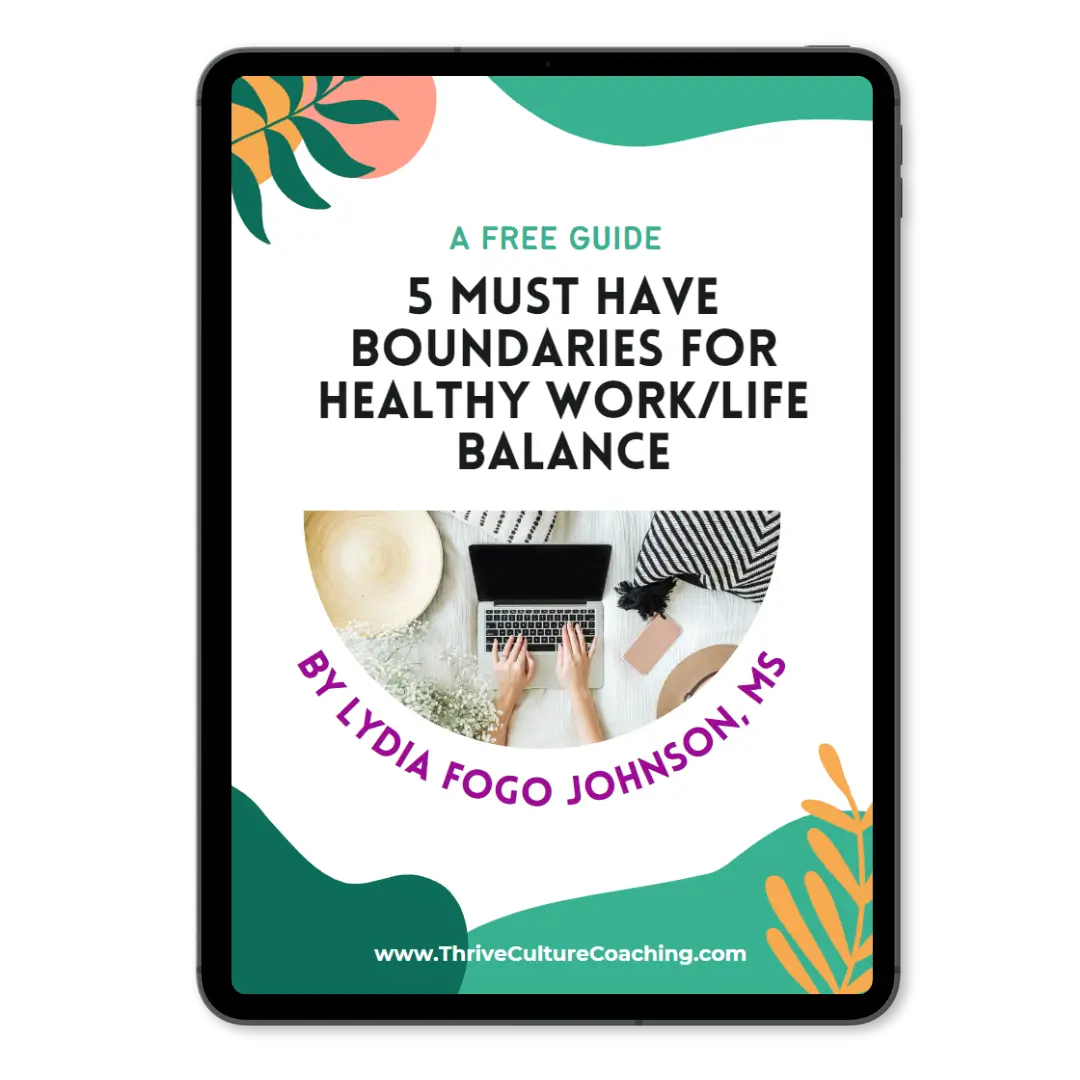Table of Contents
You wake up before the sun, making breakfast and packing lunches while your own mind is already racing through a dozen other tasks.
You get everyone dressed and out the door, but your workday is just one part of your job. Throughout the day, you’re also scheduling doctor appointments, planning birthday parties, and worrying about your child’s friendship struggles.
This constant, unseen mental juggling act is the Invisible Load of Motherhood.
If this feels achingly familiar, you’re not imagining it. Research shows that women, especially moms, take on roughly 60% more unpaid household and caregiving work than men. Worryingly, this gap persists even when both partners have full-time jobs.
You carry the weight of remembering, planning, and organizing your family’s entire life, and this mental burden takes a toll on your stress levels, your sleep, and your overall well-being.
This guide is meant to be a helping hand. We’ll walk through practical ways to recognize, communicate, and finally start sharing this invisible work.
Let’s explore how you can build the support you need, because your mental health matters deeply.
What Exactly Is the Invisible Load of Motherhood?
The invisible load is all the unseen and unpaid work that keeps a family functioning smoothly. It’s the endless hum of background processing that never truly shuts off.
In most families, mothers become the “default parent,” the one who holds all of this in their head.
As Harvard sociologist Dr. Allison Daminger puts it, the hidden load is “the mental energy it takes to run a household and raise children. It’s remembering everything, planning everything, and coordinating everything.”
The invisible load mothers carry goes far beyond the obvious chores. It includes physical, mental, emotional, and cultural work (much of it unseen) that adds up to a heavy and ongoing burden.
Here’s a look at the key kinds of labor involved:
Physical Labor
These are the visible tasks like cooking, laundry, cleaning, and running errands. Mothers often handle a large share of these duties. There is also the physical toll of pregnancy, postpartum recovery, and nursing: real work that can be exhausting but often goes unrecognized.
Mental Labor
This is the core of the invisible load: constant planning, organizing, and anticipating that keeps the family running smoothly. Remembering appointments, tracking school needs, and managing schedules creates an ongoing mental to-do list that rarely takes a break.
Emotional Labor
Managing the feelings and moods of your family is another major responsibility. Whether calming a toddler’s tantrum or helping older children through conflicts, emotional labor requires energy and patience, often while managing your own emotions.
Learning Labor
As children grow and change, mothers must continually learn and adapt. This includes understanding developmental milestones and navigating education and health needs: an ongoing effort that demands attention and mental energy.
Time Labor
All of these tasks consume significant time… so much time! From packing lunches and scheduling appointments to organizing extracurricular activities, this time drain leaves little space for rest or personal priorities.
Career Labor & Work-Family Conflict
Balancing a demanding career with motherhood often feels like walking a tightrope. Many mothers find themselves making sacrifices in one area (career, family, or personal well-being) to keep everything afloat, which can lead to chronic stress and overwhelm.
On top of all this, there is the pressure of feeling like you are performing this exhausting balancing act on a stage, judged by countless eyes. The expectations and unwritten rules of this performance are set by societal and gender norms, which add another heavy layer to the invisible load.
How the Invisible Load Feels and What It Does
The invisible load creates a relentless cognitive and emotional burden that seeps into every part of your life. Your mind rarely gets a break, which directly impacts your well-being in several profound ways:
Mental Health Challenges & Cognitive Strain
This constant mental overload can cause persistent low-level (let’s be real, even very high-level) anxiety and depression. It can also lead to difficulty sleeping because your brain never fully powers down.
Over time, the unrelenting pressure can heighten the risk of depression (including postpartum depression for mothers with newborns) and drive stress levels even higher, especially when societal expectations pile onto everyday responsibilities.
Irritability and Resentment
Many moms also feel frustration and resentment toward those closest to them: partners, children, or even employers. These “mom rage” feelings often arise from the exhausting imbalance of shouldering most of the invisible load alone, leading to strained relationships and emotional fatigue.
Things get even worse when that imbalance becomes the norm. The weight grows heavier, the frustration sharper, and the stress harder to shake.
The Impossible Balancing Act
You are striving to be a present parent, a dedicated employee, and a supportive partner while simultaneously managing countless small but critical details. This juggling act leaves little room for yourself, making work-life balance feel more like a myth than a reality.
Loss of Self and Identity
In the midst of managing so much for others, many mothers experience a profound loss of self. It can feel as though your identity has become inseparable from your role as “mom” or “mama,” leaving you wondering who you are outside of caregiving. This loss can be isolating and emotionally draining.
Loss of Self-Confidence
Despite your best efforts, you might feel like you’re failing at work, parenting, or managing the household, leading to a painful erosion of self-confidence. Trying hard but feeling like you’re falling short everywhere can create a heavy emotional toll.
Caregiver Burnout
The cumulative pressure of caregiving without adequate support can lead to caregiver burnout. This form of exhaustion drains your physical and emotional reserves, impacting your health, relationships, and overall sense of well-being.
Work-Related Burnout
The stress from home life, combined with limited time for rest and self-care, often bleeds into your professional life. This overlap can fuel burnout both at work and at home, creating a vicious cycle of exhaustion that’s hard to break.
If You’re a New or Expecting Mom, You’re Also Navigating Matrescence
Motherhood isn’t a switch you flip overnight. It’s a profound, ongoing transformation known as matrescence. This term, coined by anthropologists and psychologists, describes the complex evolution of your identity, body, emotions, and relationships as you become a mother.
If you’re pregnant or have a newborn, you’re likely experiencing this intense internal journey alongside the invisible load of daily mental labor. It’s normal to feel overwhelmed, uncertain, or disconnected from your previous self. You might face postpartum challenges like anxiety, exhaustion, or a shifting sense of purpose.
Matrescence can add layers of emotional and mental weight that often go unrecognized but deeply affect your well-being. Understanding this phase as a developmental passage (not a personal failing) can help you extend yourself more compassion and patience during this wild, unpredictable ride.
As a certified matrescence coach, I take a matrescence-informed approach to my holistic career and burnout coaching, supporting moms through these deep transitions alongside the everyday challenges of balancing work and family.
If these feelings resonate, you’re not alone. Many mothers feel this way, and recognizing matrescence is the first step toward finding support, healing, and a renewed sense of self as you adjust to your new life.
4 Strategies to Lighten Your Load
The invisible load doesn’t have to crush you. You can take practical, deliberate steps to redistribute this weight. Here are four distinct strategies to get you started:
1. Communicating & Enlisting Support from Your Partner
The invisible load often falls heavily on mothers, not because of a lack of communication or effort, but due to deeply ingrained societal norms and invisible expectations that default this mental labor to them. One of the simplest but most powerful ways to change this is by talking openly with your partner about what you’re carrying, both the visible and the unseen.
This isn’t about blame or telling your partner what to do. It’s about building a genuine partnership where both of you fully recognize the mental, emotional, and physical work required to keep your family running smoothly.
If you’re partnered or married, communication tools like Fair Play (which help you both identify and fairly redistribute the invisible load) can transform your relationship and enhance the well-being and happiness of everyone involved.
At its core, the principle is simple: sharing the work starts with sharing the responsibility to notice it. Often, your partner may not see the full scope, not because they don’t care, but because they aren’t carrying the same mental load day after day. Together, you can make that invisible work visible and create a system that honors both your energy and your priorities.
As a certified Fair Play coach, I’ve supported many couples in this journey, turning invisible overwhelm into shared ownership, equitable teamwork, and healthier, happier homes. While it’s not an instant fix, it’s a sustainable path toward partnership that nurtures both your well-being and your relationship.
Here’s how to start building your Fair Play partnership:
Make the Invisible Visible Together
Sit down without distractions and map out every task involved in running your household and family life: big and small, visible and behind-the-scenes. Use a notebook, spreadsheet, or even the Fair Play card deck to guide you. Seeing all this work laid out creates empathy and helps both partners understand the true weight of the invisible load.
Co-Create Your System of Shared Ownership
Once you’ve named all the tasks, decide who will hold each card. This isn’t about splitting things down the middle, but about letting one person “quarterback” a card so you can find an equitable balance that reflects your unique lives, strengths, and current bandwidth. Roles can shift over time. Fair Play encourages regular check-ins to “redeal” cards based on changing needs.
Use “I Feel” and “We” Language to Stay Connected
Approach conversations with openness and kindness. Express your experience without blame. Say things like, “I feel overwhelmed trying to keep track of all the appointments,” rather than “You never help with the scheduling.” And emphasize the “we” of your partnership: “How can we work together to make this feel fairer for both of us?”
Take Full Ownership of Tasks
Assigning ownership of a task means giving your partner full permission and authority to manage all aspects of it. This reduces the “second shift” of mental labor many women carry: no more reminders or micromanaging. When your partner holds a card, they carry the whole mental load, which frees you to focus your energy elsewhere. If this feels scary, remember that you can have clarifying conversations about expectations and needed standards before they give it a go!
Make It an Ongoing Dialogue
Fair Play is a living system, not a one-time fix. Life changes, work demands fluctuate, and children grow. Set up regular, low-pressure conversations (weekly or biweekly) to revisit your cards, celebrate progress, and adjust the workload as needed. This keeps your partnership dynamic, fair, and sustainable.
By embracing Fair Play principles, you and your partner move from default roles and invisible expectations into a clear, respectful collaboration that nurtures your relationship and protects your well-being.
Not partnered or married?
This work is just as important! Start by making a detailed “brain dump” or big list of everything on your mental to-do list. From there, identify what you can cut, delegate, or seek additional support for. It’s a powerful first step toward lightening your invisible load and reclaiming your energy.
2. Build Your Personal Support System
Beyond your partner, your existing network of family and friends can be a lifeline if you let them in. Yet for many mothers, this is often one of the hardest steps. Asking for help can stir up guilt or even the fear of being judged as less capable. Perfectionism whispers that you should be able to manage everything yourself, and guilt convinces you that leaning on others makes you a burden.
But here’s the truth: asking for support is not a sign of weakness. It’s a sign of wisdom. It’s also an act of strength and love, because when you protect your well-being, you’re showing up as a healthier, more present version of yourself for your family. The people who care about you often want to help; they may just be waiting for you to let them know how.
Here’s how to let them in:
Ask for Specific, Practical Help: Vague cries for help like “I’m so stressed!” are hard for others to act on, but specific requests open the door to meaningful support. Try something like: “Would you be able to pick up my child from school on Tuesday?” or “Could you watch the kids for an hour on Saturday so I can have a break?” Being clear not only makes it easier for others to step in, but it also reminds you that your needs are valid and worthy of support.
Create a Favor Exchange: If asking outright feels uncomfortable, consider building a system of mutual support. Connect with other parents at your child’s school or in your neighborhood and create an informal “favor swap.” Trading childcare duties or carpooling days gives everyone more breathing room, and it reframes help as teamwork rather than a one-sided ask.
The invisible load wasn’t meant to be carried alone. Giving yourself permission to reach out and accept support is a powerful step toward lightening the weight you carry every day.
3. Find a Dedicated Support Group
While leaning on friends can be helpful, there’s a unique kind of relief in connecting with other mothers who are walking the same path. Support groups offer a space where you don’t have to justify your exhaustion or explain the weight you’re carrying. Everyone already understands. That feeling of being “seen” without explanation can be profoundly healing, easing the isolation and loneliness that often accompany the invisible load.
The beauty of these groups is that they offer both emotional validation and practical tools. Simply being able to share openly, without fear of judgment or having to prove that your struggles are “real,” lifts a tremendous emotional weight. And beyond the relief of being understood, these communities are full of lived wisdom. Listening to how other mothers manage daily logistics, cope with stress, or find balance normalizes your experience and equips you with fresh strategies to try in your own life.
Support groups can take many forms, and part of the process is finding the one that feels right for you. Start with your workplace: see if your company offers a Parents or Moms Employee Resource Group (ERG). These groups give you a built-in community of colleagues who understand the challenges of balancing career and caregiving, while also advocating for more supportive workplace policies.
Other avenues worth exploring include:
Parenting-Focused Groups: Communities like Momwell and The Society of Working Moms (which I’m a member of) connect you with mothers who are facing similar challenges. They offer both empathy and concrete strategies you can apply in your daily life.
Postpartum & Specialized Support: Postpartum Support International facilitates free peer support groups (both online and in-person) for moms and dads navigating the postpartum experience. There are also groups specific to people who need help with various traumatic experiences through PaTCH.
Online Communities: Digital spaces give you the flexibility to connect anytime, anywhere, especially helpful when getting out of the house feels impossible.
In-Person Local Groups: Neighborhood meetups, school-based parent groups, or gatherings through churches and community centers allow you to build face-to-face connections that strengthen your local village.
Identity-Based Groups: Look for spaces designed for working moms, single moms, mothers of color, or parents of children with special needs. These communities provide tailored support that speaks directly to your lived experience.
Whatever the format, the right group becomes more than just a circle of advice. It’s a community where your invisible load is acknowledged, validated, and lightened through shared understanding.
4. Shift Your Mindset: From Perfection to “Good Enough”
One of the heaviest pieces of the invisible load isn’t just the endless tasks. It’s the pressure to do it all perfectly. From the “supermom” culture on Instagram to unspoken expectations at work and home, mothers are often told that anything less than flawless means falling short. These pressures aren’t personal weaknesses; they’re external forces rooted in gendered expectations that rarely land as heavily on dads.
Morgan Cutlip explores this beautifully in her book Loving Your Kids Without Losing Yourself. She writes about how the cultural pressure to be a “supermom” drives women toward exhaustion, and how reclaiming your own needs isn’t selfish: it’s essential. Her framework invites moms to step back from perfectionism and create a more sustainable version of motherhood that centers connection and joy over performance.
Building on her insights, here are some practical ways to apply this shift in daily life:
Embrace “Good Enough”
Your children need a present and emotionally available mother far more than they need a Pinterest-perfect one. Giving yourself permission to be imperfect lifts an enormous weight. In practice, “good enough” might look like ordering takeout instead of cooking when you’re drained, leaving the laundry unfolded so you can rest, or simplifying birthday traditions so they’re fun rather than stressful. Each small release of unrealistic standards frees up mental and emotional space for what truly matters: connection and love.
Practice Self-Compassion
Self-compassion is the antidote to the harsh inner critic fueled by perfectionism. As psychologist Christopher Germer puts it, “Self-compassion is simply giving the same kindness to ourselves that we would give to others.” When you inevitably drop a ball (because you’re human), pause and respond with gentleness instead of guilt. One simple practice is to place a hand on your heart and repeat: “I am doing my best. I am worthy of rest and care, too.” Over time, these small acts soften the pressure of perfection.
See It as a Process
Shifting your mindset from perfection to “good enough” isn’t a one-time decision. It’s ongoing work. Some days it will feel natural, and on others, the old narratives will creep back in. That’s normal. Surrounding yourself with supportive people (whether friends, therapy, or moms’ groups) can reinforce the shift. Think of it less as “fixing” yourself and more as practicing a radical act of resistance: choosing to honor your humanity in a culture that often demands self-erasure from mothers.
Ready for a Lighter Path?
Recognizing the invisible load is just the beginning. The real shift comes when you start releasing the pressure to do it all and create rhythms that support both you and your family. That process can feel daunting, but you don’t have to carry it alone.
As a Matrescence Certified Coach, I specialize in guiding mothers through this profound life transition: the physical, emotional, and identity shifts that come with motherhood. Together, we’ll untangle the patterns of perfectionism and overwhelm, and replace them with practical, compassionate strategies that honor your needs as much as your family’s.
If you’re ready to explore what balance could look like for you, I’d love to connect. Let’s talk. You can schedule a free, no-obligation consultation call with me here.




Share